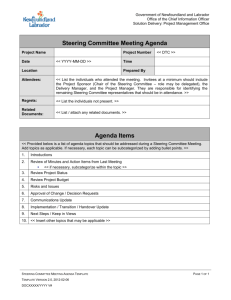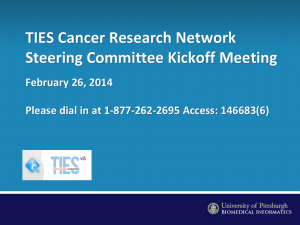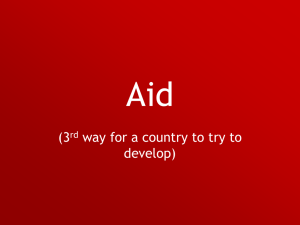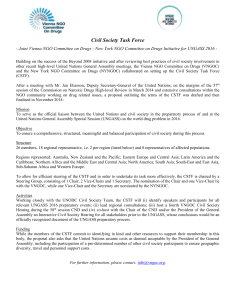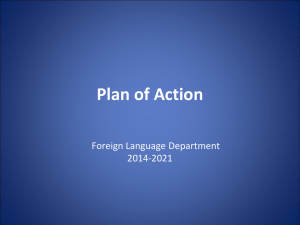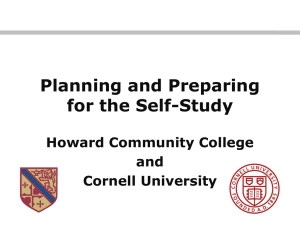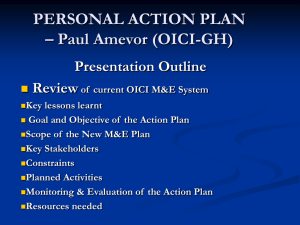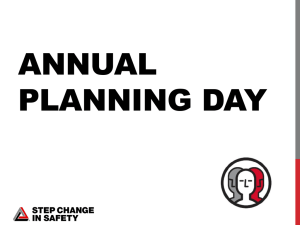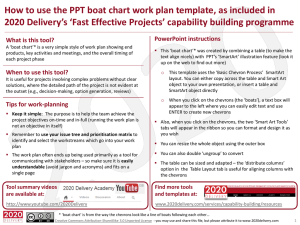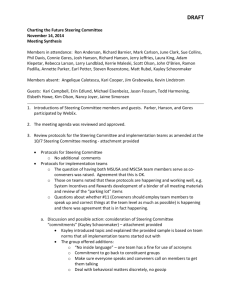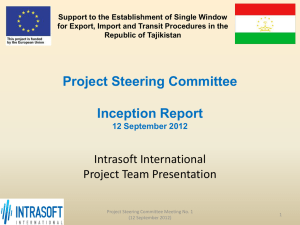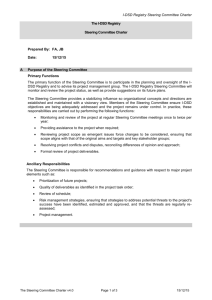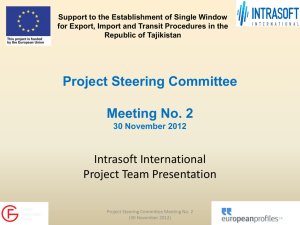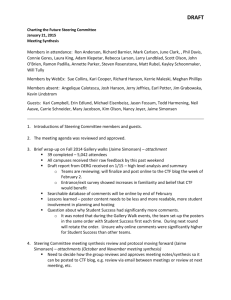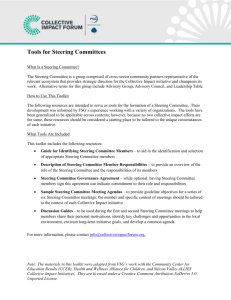Governance and steering committees
advertisement
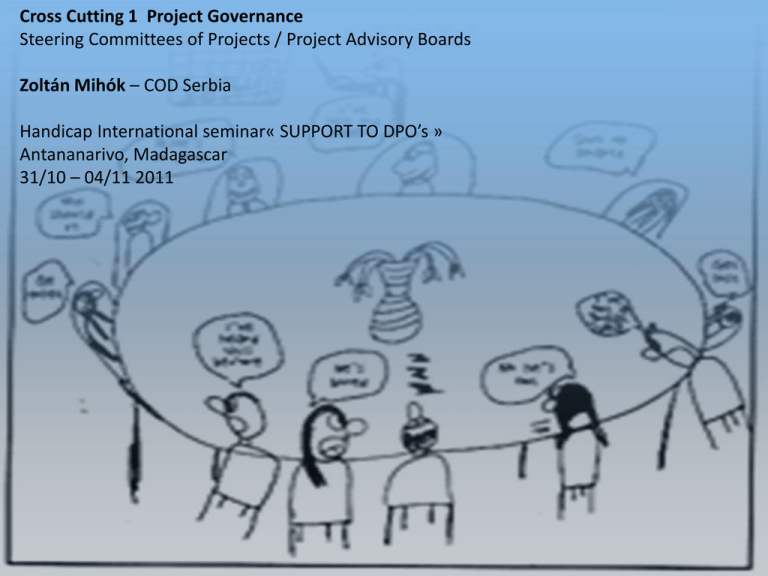
Cross Cutting 1 Project Governance Steering Committees of Projects / Project Advisory Boards Zoltán Mihók – COD Serbia Handicap International seminar« SUPPORT TO DPO’s » Antananarivo, Madagascar 31/10 – 04/11 2011 During this session will present and discuss with you following: - Examples of steering comities on different levels - How to make a project real participatory? - Challenges and opportunities for relationship HI and DPO (International NGO / local NGO) What is Steering Committee / Project Advisory Board? Definition 1: The Steering Committee is a group of individuals responsible for general operating policy, procedures, and related matters affecting the project/program/organization as a whole Definition 2: An advisory committee usually made up of high level stakeholders and/or experts who provide guidance on key issues such as project/program/organization policy and objectives, budgetary control, resource allocation, PR strategy, and decisions involving large expenditures. Definition 3: .... One of the key aspects of managing the project/program is the composition and role of the steering committee: Who is on it? What does it do? What is its scope? Does it make decisions or only recommendations? If it doesn't make decisions, who does? Who has the titular power? Who has the real power? Who knows what they're talking about? Who just knows the acronyms? Does the committee have access to the right information? Are the members clear about their role? Is the content more important to them or are they problem solvers? The answers to these questions are not easy nor are they obvious. Composition of a Steering Committee The project steering committee should consist of individuals representative of the CSO’s (NGO’s) and who have a direct, vested interest in realizing the project’s deliverables and objectives. When Do We Define Roles and Responsibilities? Ideally, roles and responsibilities should be defined at the start of the project when the project structure is established, and signed off at the first steering committee meeting. Examples of Project Advisory Board / Steering Committee Example 1: DRC One implementing agency, 3 countries, network of CSO’s – 3 years project – DRC / Kosovo Initiative Program 2004 - 2006 Example 2: HI Partnership consortium, HI + Donor country NGO + 4 local DPO’s , 6 countries – 6 years project – HI / Share SEE DRC / Kosovo Initiative Program Fresta / NAB - Donor Phase 1: PAB consisted from 5 external Civil Society experts and 2 DRC officers Montenegro Kosovo (UNSCR 1244) Serbia 17 CSO’s / NGO’s in the KIP Network KIP Secretariat – 4 persons Phase 2: PAB consisted from 3 external Civil Society experts, 2 Municipal Representatives and 2 DRC officers - Meeting on regular basis in order to review, select and monitor the KIP Open Fund and KIP Network projects - An independent PAB has as well been a guarantee against any conflict of interests in the selection of projects for the Open Fund - KIP Network partners accountable to their communities, but also to PAB - No executive role - Fee per meeting DONOR 1 DONOR 2 DONOR 3 DONOR 4 INTRAC / SHIA HI as implementing partner and DONOR Polio Plus IC Lotos CIL ADS 6 countries, 3 groups of languages, very divers regions in terms of development, post conflict area, from emergency toward development region and program In general the Share SEE Steering Committee's role was to: -take on the responsibility for project's feasibility, implementation plan and achievement of outcomes; -ensure that project's scope aligns with the agreed requirements of Donors and key stakeholder groups; -provide those directly involved in the project with guidance on project implementation issues; -ensure that effort and expenditure are appropriate to donor/stakeholder expectations; -establishing rules and procedures -establishing criteria for marking of Applications screening, marking and selecting Applicants -ensure that strategies to address potential threats to the project's success have been identified, and that threats are regularly re-assessed; -address any issue which has major implications for the project; -keep the project scope under control as emergent issues force changes to be considered; -reconcile differences in opinion and approach and resolve disputes arising from them; -report on project progress; In Summary When roles and responsibilities are well defined at the start of a project, it enables better management of expectations of the Steering Committee's role toward overall success giving us GOOD PROJECT GOVERNANCE
